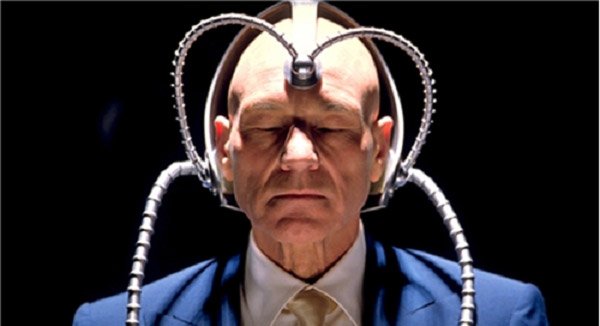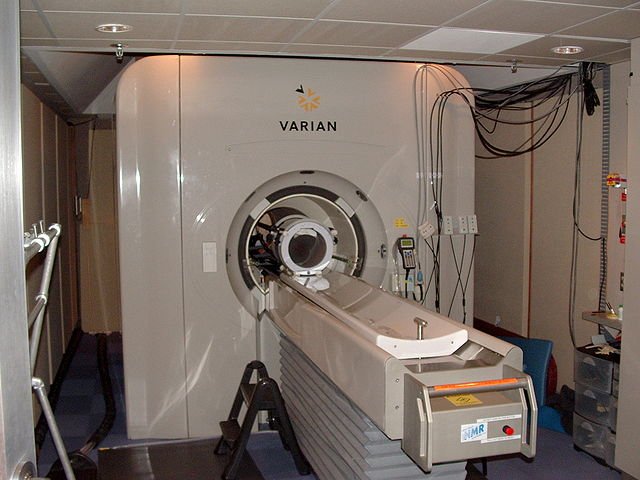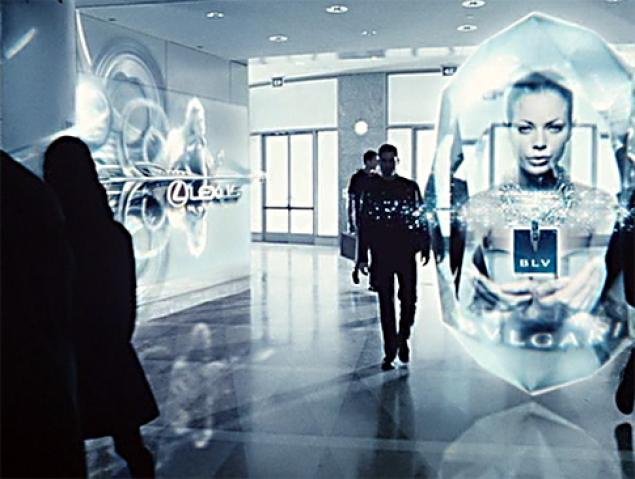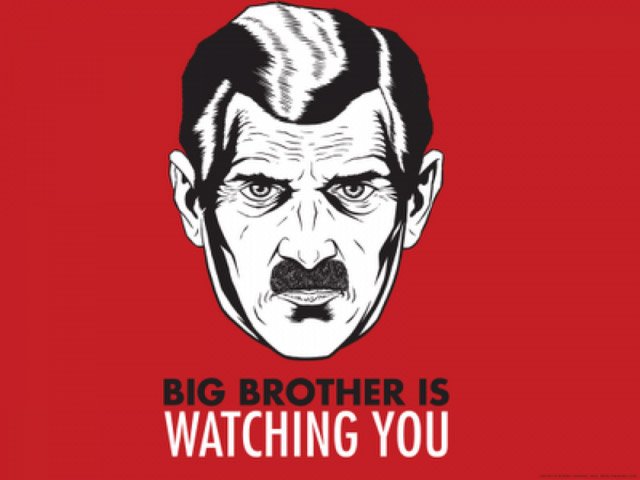fMRI Used for Lie Detection
Are we being honest when we are confronted with tough questions to answer? Maybe we are, but maybe we aren't and we don't even know it.
We can hide from reality and from ourselves. When we talk to others and tell others things, they just have to take our word for it or not if they can't verify it themselves in some other way.

source
Lie detectors are known to be unreliable which is why they are not accepted in courts as evidence. But what if there was something that could almost "read the mind" of an individual? Functional magnetic resonance imaging (fMRI) is a technology that reads what happens in our brains as activity that corresponds in some way to what happens in our minds. Brain activity is measured by tracking changes in blood flow. This non-invasive and safe method of learning about our brain has allowed us to understand more about our speech, movement, memory and other aspects of the brain.
The use of fMRI's has become more complex with the merging of machine learning algorithms. Rather than feeding preprogrammed data into a computer model of a subjects brain activity, a new computer algorithm has been developed that can create its own model to decode brain activity and can improve with practice by having enough data.

source
More recent research using fMRI's has led to the study of answers people give to questions, and whether they are truthful or contain lies. A computer model is given the answers to a series of questions, marked as either true or false answers, that are compared to someone's brain signature when they answer the same questions. The computer model can then form a "brain signature of lying" to distinguish between truthful or lying responses.

source
The model of brain activity that is generated is accurate at around 90% of the time, being able to distinguish and classify an answer as either a lie or a truth 9//10 times. A polygraph is accurate up to about 70%. Companies have now licensed this fMRI lie detection algorithm and are looking to get it accepted as evidence in court.
Even with 90% accuracy, it's still worrisome and has so far not been accepted by judges that have ruled the technology is not ready for a legal setting. With a 10% chance of sending an innocent person to jail, I would tend to agree with them.
Researchers point out that even if it can be made more accurate, the fMRI will never be error proof. One definite issue is a false memories in remembering things that didn't happen where we don't even know we lied to ourselves in the past and accepted it as a truth. Beliefs are not a de facto truth of reality. The brain scans in activity will reflect the anything someone believes to be true, even if they aren't intentionally lying. Looking at the brain scan as hard evidence that someone was lying isn't very accurate in this case.
If this ever does pass, think of the implications for invasion of privacy and even potentially thought crime or pre-crime applications that mirror 1984 by George Orwell or Minority Report by Philip K Dick.

source
Think of an advanced version of magnetic resonance imaging for you could just walk by airport scanner and it would be the same as stepping into an interrogation room. It's possible that they would eventually develop algorithms that detect aberrant behavior that doesn't only indicate violence, but would simply indicate thoughts that are not conducive to social conformity.

source
The current computer modeling requires to get to know you and the characteristics of your brain activity before it can make any accurate deductions. This requires people to be scanned for hours or over several sessions. In its current form, this can't be done without your knowledge or against your will. If you want to prevent an accurate scan you just move in the scanner.
Our legal system has ethical guidelines for researchers who want to use magnetic resonance imaging to conduct experiments, but there are no such legal requirements for commercial applications.
References:
If you appreciate and value the content, please consider:
Upvoting  , Sharing
, Sharing  or Reblogging
or Reblogging  below.
below.
Please also consider supporting me as a Steem Witness by voting for me at the bottom of the Witness page; or just click on the upvote button if I am in the top 50:


@krnel
2017-02-11, 12pm

Great article again! Thanks for sharing this new technology with us all and, even more so, for questioning its potential. Throughout the whole article I couldn't help but think about the "1984" matter, as if what is happening south of our border, here in Canada, wasn't enough!
If ever actually accepted by groups of people as a reference to truth, then the group in charge of such experiments would have to be as sharp as a knife and have cohesion when it comes to deciphering the logical aspect brought forth by the problem of believed lies, "Beliefs are not a de facto truth of reality. " and false memories. In itself, even the judges of such matter are themselves consistently taken by such events and may to very well interfere with their judgment. The dangers arising from that point on are most possibly not worth taking for either end of the equation.
Thanks a bunch for this, namaste :)
Thanks again for your rewarding token of appreciation, namaste :)
I'm not at all comfortable with 90% accuracy- maybe 99.999% but other than that no thanks in regards to being admissible evidence.
Getting to know the children/Star Wars fans
(edit)
Scary future awaits us, great post!
I just upvoted you! But, Why Does One Person Get To Decide for us all? Know the truth.
https://steemit.com/abuse/@iloveupvotes/mass-spamming-mentions-issue-why-does-one-person-get-to-decide
This may or may not be related (depending on how you look at it), but are you familiar with the work of Martin Buber?
No I have not.
He's a 20th Century philosopher. His primary work is a book called I and Thou. In it he writes that when someone tells you something you automatically frame it in a manner that relates to you rather than hearing what they are really trying to say. This makes meaningful dialogue difficult if not nearly impossible. He calls it living in monologue rather than dialogue. For some reason that popped into my head while reading your article.
That's a psychological factor that's always at play. When we are young, we tend develop our ego-personality-identity and are still learning our position and place in reference to the world. Selfview and worldview. Part of that development of self is going from the polarity of ego-centric view, towards a more inclusive adoption of socio-centric considerations instead of polarized towards the self/ego.
Everything is always compared to other things, and one thing we compare against is ourselves. How something relates in similarity or difference to ourselves. As we mature in consciousness and awareness of reality, we tend to recognize the socio-centric aspect and not simply look at how things only relate to ourselves, but what the "other" in reality is doing. This is what empathy and sympathy is for.
This aspect of socio-centric starts with ego-centric, but includes the two as we develop. Empathy and sympathy are based on identification with others in relation to ourselves. It requires a framing and reference to ourselves in order to identify with others. Automatic framing to ourselves isn't a negative, but can be a stumbling block in undeveloped conscious awareness of reality.
Thanks for the feedback.
Thank you...Buber's view is far more complex than what I stated. I was just giving you an idea about it. What you described above is what I generally call inner-directed toward outer-directed, it's supposed to be part of maturing. However, because our society seems to have hit a stumbling block. I believe that mass media is largely responsible, primarily television that formulates a pattern of false needs through advertising etc.
There is an argument in social behaviour that altruism is required for the survival of the human species. From what I have gleaned, it seems to be an intellectual argument which requires a certain degree of unlearning for it to be adopted. As a layman, your views would be most interesting to hear.